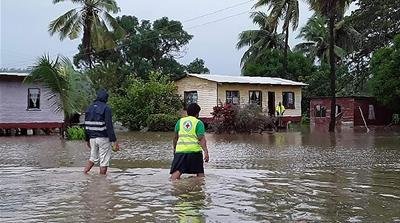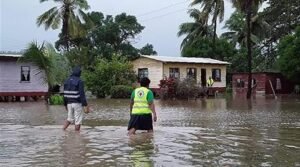Introduction
Fiji is at the forefront of climate change, with rising sea levels and severe cyclones threatening the safety of coastal communities. To address this, the government has implemented a Standard Operating Procedures (SOP) for Planned Relocation. But what is really at stake for Fiji’s people?
The Threat of Rising Seas and Cyclones
Fiji has been hit by multiple cyclones in recent years, including Cyclone Winston and Cyclone Yasa, which caused widespread destruction. In addition to these immediate threats, rising sea levels are slowly submerging coastal villages, putting homes, crops, and livelihoods at risk.

The Government’s Relocation Policy
In response, Fiji has introduced SOPs for Planned Relocation. The policy prioritizes community involvement, ensuring that relocation is done in consultation with those affected. The goal is to move people to safer locations while preserving their cultural and social structures.
Cultural Identity and Relocation
While the policy is well-intentioned, many Fijians fear that relocation could lead to the erosion of their cultural identity. The land they live on is not just property—it is where their ancestors lived, where their traditions were passed down, and where their culture thrives.
The Future of Fiji’s Communities
Relocating entire villages is a complex and emotional process. It is not just about physical safety but also about preserving the essence of Fijian culture. The challenge for Fiji, and for other Pacific island nations, is to find ways to adapt to climate change without losing what makes them unique.
Conclusion
Fiji’s experience offers a stark reminder of the human dimension of climate change. As nations like Fiji face the need to relocate, they are also grappling with how to protect their cultural heritage. It is a challenge that will require innovative and sensitive solutions.


